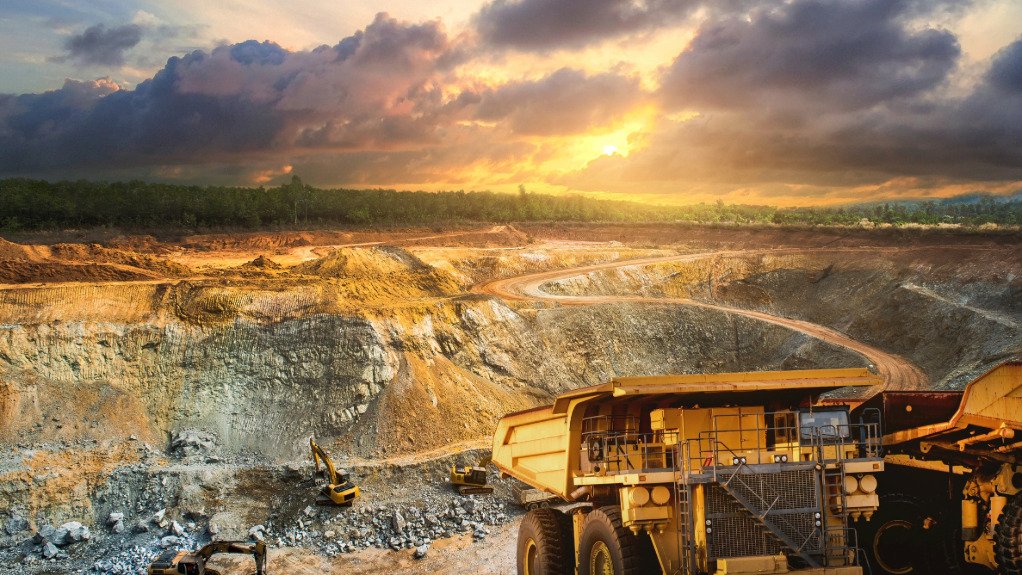Early ESG integration with innovative model


RESPONSIBLE PROJECT DELIVERY Embedding ESG is at the heart of project management to drive sustainable, compliant and community-aligned outcomes
As environmental, social and governance (ESG) expectations reshape the way in which mines are planned, financed and valued, environmental consulting firm Kongiwe is taking a data-driven, scenario-based approach, says founder and CEO Bradly Thornton.
The central focus is on ensuring that ESG is “not an afterthought but a core design principle in modern mining projects”, he adds.
Thornton says that integrating ESG from the earliest stage of mine development, even before feasibility studies, delivers measurable value, reducing project risk, improving stakeholder confidence and boosting long-term viability.
“By bringing ESG into the front-end, we reduce the surprise factor later and ensure that strategic choices, such as the site layout, tailings design and water sourcing already account for likely ESG constraints,” he highlights.
Thornton, who has over two decades of experience in environmental and social advisory and geospatial sciences, says Kongiwe supports clients, from scoping to closure, using an integrated approach that merges technical, financial and social intelligence.
Materiality Assessments
At the scoping or prefeasibility stage, Kongiwe conducts ESG materiality assessments tailored to a project’s geology, geography and community context, identifying the most material issues, from biodiversity and water use to social resettlement.
These factors are then quantified and modelled under multiple future scenarios to test how different regulatory, environmental or social outcomes could affect the design and cost of mining projects.
Thornton says this is done to ensure that ESG scenario planning is not only viewed as a parallel exercise but also embedded directly in mine planning, as ESG data modules for water, biodiversity, resettlement and energy are designed to interface seamlessly with geological and financial models.
Kongiwe’s work is also helping mine planners take ESG integration to a more granular level, which is linked to the emerging practice of linking ESG metrics directly to geological block models, thereby representing a shift that Thornton says “turns sustainability into spatial intelligence”.
By attributing ESG scores, such as water stress, biodiversity sensitivity or rehabilitation costs to specific ore blocks, the company enables clients to quantify environmental and social costs alongside grade and recovery data.
“When the mine planner runs an optimisation or scheduling model, those ESG considerations feed directly into the net value of each block.”
Therefore, decisions, such as where to mine first or which mining block can be delayed, are informed by mining, financial and ESG realities, and not just ore grade. The results include clearer trade-offs between economic and environmental value, more targeted mitigation investments and more realistic closure cost estimates, adds Thornton.
ESG Responsibility, Economic Reality
Social dynamics, often the least predictable ESG variable, is another aspect where Kongiwe encourages flexible, feedback-driven planning, as social expectation is less quantifiable and more dynamic than other ESG factors, notes Thornton.
Through adaptive social design, mining projects can scale or reprofile their community investments from basic services to enterprise development, as well as ensure they are in line with changing demographics and local priorities. This reduces the risk of overcommitment or misalignment with community needs over a mine’s life span.
Thornton also stresses the need for phased ESG investment and “trade-off transparency”. Rather than overdesigning at the scoping stage, he advises clients to focus resources on material issues, maintain contingency margins and design for flexibility.
ESG should not just be a constraint but rather form a part of the cost-benefit equation and an increasing source of long-term value.
Investor and government scrutiny is accelerating this shift, as access to capital is increasingly conditional on credible ESG performance, with lenders and shareholders rewarding projects that demonstrate strong environmental and social governance with better risk premiums and financing terms.
“ESG is no longer optional or retrofitted – it’s becoming a core determinant of project viability, valuation and social acceptance. Projects with weak ESG commitments are struggling to attract funding or favourable terms,” he adds.
Governments across Africa are also tightening reporting and rehabilitation regulations, while offtakers and downstream manufacturers are willing to pay premiums for responsibly mined metals.
On project economics, Thornton highlights that valuation models for mining projects which embed ESG risk directly result in higher discount rates, improved access to financing and enhanced stakeholder partnerships, which, ultimately, increases a mining project’s net present value.
Article Enquiry
Email Article
Save Article
Feedback
To advertise email advertising@creamermedia.co.za or click here
Press Office
Announcements
What's On
Subscribe to improve your user experience...
Option 1 (equivalent of R125 a month):
Receive a weekly copy of Creamer Media's Engineering News & Mining Weekly magazine
(print copy for those in South Africa and e-magazine for those outside of South Africa)
Receive daily email newsletters
Access to full search results
Access archive of magazine back copies
Access to Projects in Progress
Access to ONE Research Report of your choice in PDF format
Option 2 (equivalent of R375 a month):
All benefits from Option 1
PLUS
Access to Creamer Media's Research Channel Africa for ALL Research Reports, in PDF format, on various industrial and mining sectors
including Electricity; Water; Energy Transition; Hydrogen; Roads, Rail and Ports; Coal; Gold; Platinum; Battery Metals; etc.
Already a subscriber?
Forgotten your password?
Receive weekly copy of Creamer Media's Engineering News & Mining Weekly magazine (print copy for those in South Africa and e-magazine for those outside of South Africa)
➕
Recieve daily email newsletters
➕
Access to full search results
➕
Access archive of magazine back copies
➕
Access to Projects in Progress
➕
Access to ONE Research Report of your choice in PDF format
RESEARCH CHANNEL AFRICA
R4500 (equivalent of R375 a month)
SUBSCRIBEAll benefits from Option 1
➕
Access to Creamer Media's Research Channel Africa for ALL Research Reports on various industrial and mining sectors, in PDF format, including on:
Electricity
➕
Water
➕
Energy Transition
➕
Hydrogen
➕
Roads, Rail and Ports
➕
Coal
➕
Gold
➕
Platinum
➕
Battery Metals
➕
etc.
Receive all benefits from Option 1 or Option 2 delivered to numerous people at your company
➕
Multiple User names and Passwords for simultaneous log-ins
➕
Intranet integration access to all in your organisation



















